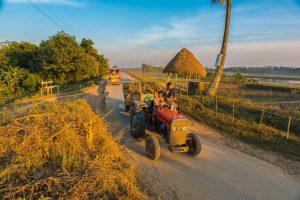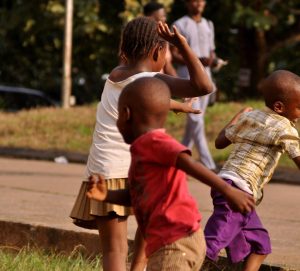Written by Lauren Kinnaird, Senior Programmes Officer.
Having previously volunteered with CSC network member S.A.L.V.E International, I knew I would really enjoy getting to know our inspiring network members and partners as part of my new role at as CSC’s Senior Programme Officer. Since I joined, as well as acquainting myself better with the network as a whole, I have been particularly getting to know those who are part of our project supported by Comic Relief US (CRUS).
Learning about their work and the children they support; three themes have stood out for me that I’d like to share as my ‘first impressions’: the importance of trust building; the power of participatory approaches; and how learning plays a key role in empowerment.
Trust building
Building trust with street-connected children is core to all the partners’ interventions. Bahay Tuluyan exemplify this with their ability to re-connect children to support, despite severe Covid-19 restrictions in the Philippines, which made in-person interaction with children extremely difficult. They were able to re-engage isolated children because of the trusting relationships they have with them and their communities. As a result, Safe Tiki Safety Education (which focuses on mental health, abuse, literacy/numeracy among other topics) has re-started quickly with many children completing multiple learning sessions.
Participatory approaches
I have always championed participatory approaches as essential for programmes to be successful so I was excited to learn more from partners about their work in this space. One that stood out was Isa Wali Empowerment Initiative’s development of a community committee who have decision making power for their programme in Nigeria. The committee is made up of ten community members, including two women. Following training, the committee agreed to run in a participatory, discussion-based way and chose to create 3 subcommittees, each responsible for a component of the project. This community ownership is already creating impact that an NGO couldn’t alone, and it will be game-changing for sustainability.
I was also keen to know more about child participation, and how that intersects with advocacy. One example that really stood out to me was Search for Justice in Pakistan referring to ‘media as the opinion maker’ in a recent workshop. Search for Justice takes advantage of this by encouraging street-connected children to participate safely in media consultations, empowering them to share their own perspectives and create momentum behind advocacy campaigns. It has been fascinating to learn about. CHETNA in Delhi used a public event, ‘Street Talk’, to influence government officials, the public and media representatives in a similar way, where street-connected children shared their journeys of surviving on the streets, and their thoughts about how government could make positive changes. These are just two interesting examples of many.
Finally, Gurises Unidos have been using participatory design to formulate operational plans and implement the Uruguayan government’s National Plan for children in street-situations. Children and adolescents are participating at every stage by sharing their priorities to shape the plan. I think this presents a great opportunity for other network members to learn about how children can participate in government processes at the highest level.
Learning
Knowledge is a powerful tool in enabling children and adults to reach their potential, and joining CSC I was eager to learn about the variety of learning opportunities offered by partners. WeYone Child Foundation in Sierra Leone told me about their holistic project for street-connected children and how they have seen impressive knowledge improvements around sexual and reproductive health education. On the topic of teenage pregnancy, the number of children passing knowledge tests increased from 24 before learning sessions to 93 after. This knowledge will enable children to make informed choices about their sexual and reproductive health, and help them to achieve their goals.
Similarly, it has been great to learn about the monthly parental training offered by Child Life Line in Nigeria. Training has included events decoration, how to make liquid soap, disinfectants and local insecticides and knitting. Child Life Line have reported that some parents’ are using their new skills to earn income and better meet their children’s needs. These amongst other examples have shown me just how important learning opportunities are for the children and young people that our partners support.
In my first three months at CSC I have learnt how essential building trust is for work with street-connected children across all of our partners’ work. Organisations must build and maintain trust for children, young people and their families and communities to be willing to participate in projects or engage in learning, which are key to making change happen for street-connected children. I’m looking forward to integrating this trust-building approach into my ongoing work with our partners, whilst supporting them to learn from each other’s experience and approaches.

